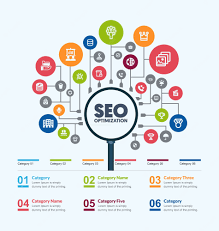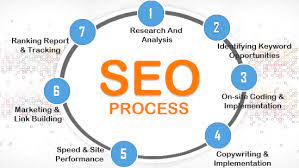Maximising Your Website’s Visibility with Drupal SEO Strategies
The Power of Drupal SEO: Boosting Your Website’s Visibility
Drupal is a powerful content management system (CMS) that offers robust features for building and managing websites. When it comes to search engine optimisation (SEO), Drupal provides a solid foundation for enhancing your website’s visibility and ranking in search engine results.
Why Choose Drupal for SEO?
Drupal is known for its SEO-friendly architecture, making it easier for search engines to crawl and index your website. The platform offers a range of built-in SEO tools and modules that allow you to optimise various aspects of your site, including meta tags, URLs, sitemaps, and more.
Key Drupal SEO Features
- SEO-Friendly URLs: Drupal allows you to create clean and keyword-rich URLs that are favoured by search engines.
- Meta Tags: You can easily customise meta tags such as meta titles and descriptions for better search engine visibility.
- Sitemap Generation: Drupal automatically generates XML sitemaps that help search engines discover and index your website’s pages.
- Mobile Responsiveness: Drupal themes are designed to be mobile-responsive, which is crucial for improving SEO rankings in mobile search results.
- Page Speed Optimisation: With caching options and performance enhancements, Drupal helps improve your website’s loading speed, a key factor in SEO rankings.
Tips for Optimising SEO on Drupal
To maximise the benefits of Drupal for SEO, consider the following tips:
- Create High-Quality Content: Content is king in the world of SEO. Produce informative, engaging content that resonates with your target audience.
- Optimise Images: Use descriptive alt text and file names for images to improve accessibility and enhance SEO.
- Monitor Performance: Utilise tools like Google Analytics to track your website’s performance and make data-driven decisions to improve SEO strategies.
- Maintain Regular Updates: Keep your Drupal core, modules, and themes up-to-date to ensure optimal performance and security compliance.
Enhancing SEO with Drupal: Key Features, Modules, and Best Practices
- 1. How can Drupal help improve my website’s SEO?
- 2. What are the key SEO features available in Drupal?
- 3. Is Drupal SEO-friendly for search engines like Google?
- 4. How important is content quality for SEO on Drupal websites?
- 5. Are there specific modules in Drupal that focus on SEO optimisation?
- 6. What are some best practices for implementing SEO strategies on a Drupal website?
1. How can Drupal help improve my website’s SEO?
When considering how Drupal can enhance your website’s SEO, it’s essential to recognise the platform’s inherent SEO-friendly features. Drupal offers a range of tools and modules that empower you to optimise key elements such as URLs, meta tags, sitemaps, and more. By utilising Drupal’s capabilities to create clean URLs, customise meta tags for better visibility, automatically generate sitemaps, ensure mobile responsiveness, and optimise page speed, you can significantly boost your website’s SEO performance. Drupal provides a solid foundation for implementing effective SEO strategies that align with search engine best practices, ultimately improving your website’s search engine rankings and online visibility.
2. What are the key SEO features available in Drupal?
When it comes to Drupal SEO, there are several key features that make it a standout choice for optimising websites for search engines. Some of the essential SEO features available in Drupal include SEO-friendly URLs, meta tag customisation for titles and descriptions, automatic generation of XML sitemaps, mobile responsiveness for improved mobile search rankings, and tools for enhancing page loading speed through caching options and performance improvements. These features collectively empower website owners to create an SEO-optimised online presence that is easily discoverable and ranks well in search engine results pages.
3. Is Drupal SEO-friendly for search engines like Google?
When it comes to the frequently asked question of whether Drupal is SEO-friendly for search engines like Google, the answer is a resounding yes. Drupal is well-regarded for its SEO-friendly architecture and robust features that cater to search engine optimisation needs. With built-in tools and modules designed to enhance website visibility, such as customisable meta tags, clean URLs, sitemap generation, and mobile responsiveness, Drupal provides a solid foundation for improving search engine rankings. By leveraging Drupal’s SEO capabilities and following best practices, website owners can effectively optimise their sites for search engines like Google, ultimately boosting their online visibility and driving organic traffic.
4. How important is content quality for SEO on Drupal websites?
When it comes to SEO on Drupal websites, the importance of content quality cannot be overstated. High-quality content plays a pivotal role in enhancing the visibility and ranking of a website in search engine results. In the context of Drupal SEO, well-crafted and relevant content not only engages visitors but also signals to search engines that the site offers valuable information. By focusing on producing informative and engaging content that aligns with user intent, Drupal websites can attract organic traffic, improve user experience, and ultimately boost their SEO performance.
5. Are there specific modules in Drupal that focus on SEO optimisation?
When it comes to SEO optimisation in Drupal, there are specific modules designed to enhance your website’s search engine visibility. Drupal offers a variety of SEO-focused modules that cater to different aspects of optimisation, such as meta tags, sitemaps, URL structure, and more. By utilising these dedicated modules, website owners can streamline their SEO efforts and improve their chances of ranking higher in search engine results.
6. What are some best practices for implementing SEO strategies on a Drupal website?
When it comes to implementing SEO strategies on a Drupal website, there are several best practices to consider. Firstly, creating SEO-friendly URLs with relevant keywords can improve search engine visibility. Utilising meta tags effectively, including meta titles and descriptions, can enhance click-through rates from search results. Generating XML sitemaps and ensuring mobile responsiveness are crucial for search engine indexing and user experience. Additionally, focusing on high-quality content creation, image optimisation, performance monitoring, and regular updates are key factors in successfully implementing SEO strategies on a Drupal website.









